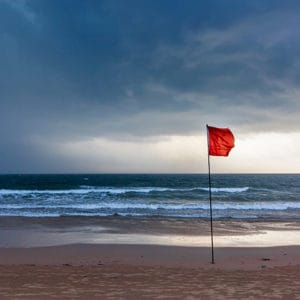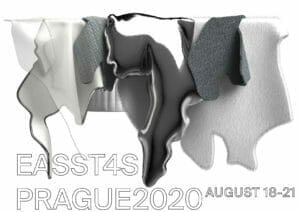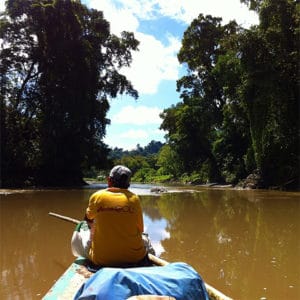Cool pavement pilot study
A joint study between Arizona State University researchers — led by Ariane Middel and Jenni Vanos — and the City of Phoenix, and sponsored by the Healthy Urban Environments Initiative, will quantify and evaluate the effectiveness of the CoolSeal product in mitigating urban heat considering various heat metrics (air temperature, surface temperature and radiant temperature). This one-year project will also assess the product performance and life cycle.

Hurricanes' pollution risks and conservation opportunities talk
ASU Center for Biodiversity Outcomes and The Nature Conservancy Assistant Research Professor Danica Schaffer-Smith, will present a talk on Monday, September 14, 2020, titled "Repeated hurricanes reveal risks and opportunities
Solving the affordable house crisis with community land trusts
In this Sept. 29 event, Stephanie Brewer explains how a community land trust uses public and private funding to build or rehabilitate houses, and then sells them under an agreement that allows first-time homeowners to build equity while ensuring that the homes will remain affordable for future buyers.
The potential of green infrastructure in mitigating flood impacts: Focused on the mobility of low income and minority communities
Short-term flooding from extreme storm events poses a serious transportation challenge in U.S. cities. This problem -- which is anticipated to grow over the next century with our global climate crisis -- is often hardest on vulnerable populations, including low-income and minority neighborhoods.
Find, track, and win COVID-19-related funding opportunities
The Office of Health Futures at ASU Knowledge Enterprise and Rachel Levinson (Executive Director, National Research Initiatives at ASU in DC) have developed a living document to help faculty and researchers across ASU find opportunities, form interdisciplinary teams, connect with clinical partners and track submissions and awards. ASU login required.
Entrepreneur's legacy honored with establishment of institute
J. Orin Edson was the quintessential entrepreneur. He cared deeply for his community and believed others should have the resources to pursue their entrepreneurial visions.

SFIS students, faculty and alumni present at EASST/4S 2020 conference
Once again, SFIS had a successful presence at the EASST/4S 2020 conference. Several students, faculty and alumni presented at the August conference, which took place virtually due to COVID-19. The

Innovations in higher education expand access and empower learners
ASU’s new University Design Institute (UDI) is coordinating an initiative to accelerate the university’s efforts to redesign American higher education. They aim to advance the development of the UDI, accelerate the development of stackable and competency-based credential systems and scale ASU’s high school programs to enroll 30,000 additional students.
Food Policy and Sustainability Leadership 2020/2021 Cohort
We are thrilled to announce Arizona State University’s Food Policy & Sustainability Leadership 2020-2021 class. With a commitment to shaping food and farm policy in the public interest, this cohort of leaders hails from across the country including Arizona, Colorado, Louisiana, Maryland, Michigan, Minnesota, Mississippi, North Carolina, Oklahoma, Tennessee, Texas, and Washington, D.C.
Students to present fall 2020 projects in showcase event
Project Cities managed twelve new projects for the fall 2020 semester. There are various project topics, including sustainability park planning, P83 revitalization visioning, solid waste management, and a layered approach
Decarbonization: blockchain - track/trace/verify - carbon offsets
Written by Karen Spiegel Reducing greenhouse gas (GHG) emissions is critical to preventing the dangers of climate change, particularly in the industrial sector which accounts for 33% of the anthropogenic

Rethinking conservation approaches in the age of COVID
On August 31, 2020, Mongabay released a new opinion piece written by Conservation Solutions Lab co-founder Michael Brown, along with other affiliated conservation researchers. The commentary piece is titled “Communities,